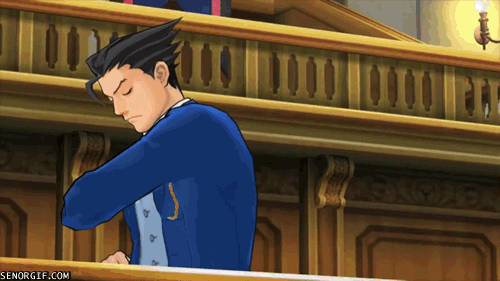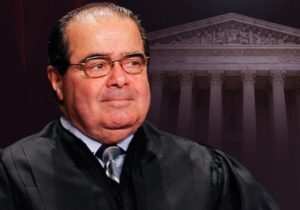A clean example of mootness appears in Tru Exploration LLC v. Energy Exploration I LLC: “The dispute on appeal centers on whether arbitration is required. Arbitration having been conducted and an award having been issued, the controversy no longer exists and the appeal is moot.” No. 05-15-00217-CV (April 27, 2018) (mem. op.) (applying Trulock v. City of Duncanville, 277 S.W.3d 920, 923 (Tex. App.–Dallas 2009, no pet.).
Monthly Archives: April 2018
 In the context of affirming a grant of summary judgment for the defendants in a dispute about a commercial real estate development, the Fifth Court observed: “The elements of a joint venture are (1) an express or implied agreement to engage in a joit venture, (2) a community of interest in the venture, (3) an agreement to share profits and losses from the enterprise, and (4) a mutual right of control or management of the enterprise. First United Pentecostal Church of Beaumont v. Parker, 514 S.W.3d 214, 225 (Tex. 2017). Joint venturere owe fiduciary duties to each other. Kirby v. Cruce, 688 S.W.2d 161, 165 (Tex. App.–Dallas 1985, writ ref’d n.r.e.).” Tin Star Development LLC v. 360 Residential LLC, No. 05-17-00040-CV (April 17, 2018) (mem. op.)
In the context of affirming a grant of summary judgment for the defendants in a dispute about a commercial real estate development, the Fifth Court observed: “The elements of a joint venture are (1) an express or implied agreement to engage in a joit venture, (2) a community of interest in the venture, (3) an agreement to share profits and losses from the enterprise, and (4) a mutual right of control or management of the enterprise. First United Pentecostal Church of Beaumont v. Parker, 514 S.W.3d 214, 225 (Tex. 2017). Joint venturere owe fiduciary duties to each other. Kirby v. Cruce, 688 S.W.2d 161, 165 (Tex. App.–Dallas 1985, writ ref’d n.r.e.).” Tin Star Development LLC v. 360 Residential LLC, No. 05-17-00040-CV (April 17, 2018) (mem. op.)
 At a recent energy law seminar for the University of Texas, My colleagues Michael Hurst, Jonathan Childers, and Jervonne Newsome presented this excellent paper on the important and recurring topic of maintaining attorney-client privilege in communications involving in-house counsel – a constant challenge given the many hats worn by legal counsel in the modern business environment.
At a recent energy law seminar for the University of Texas, My colleagues Michael Hurst, Jonathan Childers, and Jervonne Newsome presented this excellent paper on the important and recurring topic of maintaining attorney-client privilege in communications involving in-house counsel – a constant challenge given the many hats worn by legal counsel in the modern business environment.
 Tex. R. Evid. 503(d)(2), a long-lived but rarely-cited exception to the attorney-client privilege, applies “[i]f the communication is relevant to an issue between parties claiming through the same deceased client.” In In re: Rittenmeyer, the Fifth Court declined to grant mandamus relief as against an order to produce documents pursuant to this exemption, finding that – like the handful of other cases that have allowed such discovery – the case “involves a dispute between a decedent’s estate and a party who claims to be a beneficiary under the estate either through a subsequent will or because the probated will does not reflect the decedent’s intentions.” No. 05-17-01378-CV (April 18, 2017) (mem. op.)
Tex. R. Evid. 503(d)(2), a long-lived but rarely-cited exception to the attorney-client privilege, applies “[i]f the communication is relevant to an issue between parties claiming through the same deceased client.” In In re: Rittenmeyer, the Fifth Court declined to grant mandamus relief as against an order to produce documents pursuant to this exemption, finding that – like the handful of other cases that have allowed such discovery – the case “involves a dispute between a decedent’s estate and a party who claims to be a beneficiary under the estate either through a subsequent will or because the probated will does not reflect the decedent’s intentions.” No. 05-17-01378-CV (April 18, 2017) (mem. op.)
 After rejecting the novel, but problematic, argument that a corporation chartered outside Texas could not invoke the Texas longarm statute, the Fifth Court found personal jurisdiction over a Louisiana car dealer that sold retail installment contracts to a Dallas-based financial business. The Court proceeded in three distinct steps, in a framework that helps impose order on recent changes in personal jurisdiction law. First, it evaluated minimum contacts for constitutional due process requirements (considering (1) only the defendant’s contacts with the forum, (2) acts that are “purposeful” rather than fortuitous, and (3) whether the defendant sought some benefit, advantage, or profit by “availing” itself of Texas); second, it examined the “relationship among the defendant, the forum[,] and the litigation” to determine whether specific jurisdiction was appropriate; and third, it reviewed whether fair play and substantial justice was satisfied. Winnsboro Auto Ventures LLC v. Santander Consumer USA, No. 05-17-00895-CV (April 19, 2018).
After rejecting the novel, but problematic, argument that a corporation chartered outside Texas could not invoke the Texas longarm statute, the Fifth Court found personal jurisdiction over a Louisiana car dealer that sold retail installment contracts to a Dallas-based financial business. The Court proceeded in three distinct steps, in a framework that helps impose order on recent changes in personal jurisdiction law. First, it evaluated minimum contacts for constitutional due process requirements (considering (1) only the defendant’s contacts with the forum, (2) acts that are “purposeful” rather than fortuitous, and (3) whether the defendant sought some benefit, advantage, or profit by “availing” itself of Texas); second, it examined the “relationship among the defendant, the forum[,] and the litigation” to determine whether specific jurisdiction was appropriate; and third, it reviewed whether fair play and substantial justice was satisfied. Winnsboro Auto Ventures LLC v. Santander Consumer USA, No. 05-17-00895-CV (April 19, 2018).
 In a thorough review of sovereign immunity principles, the Fifth Court granted a mandamus petition and found that ERCOT was protected from claims that it misrepresented information about future demand for electric power in Texas. ERCOT v. Panda Power Generation, No. 05-17-00872-CV (April 16, 2018) (applying, inter alia,Brown & Gay v. Olivares, 461 S.W.3dd 117 (Tex. 2015)). Notably, in its discussion of mandamus standards, after noting that a trial court lacks discretion to misapply the law, the Court observed: “This principle applies even when the law is unsettled.” (citing In re: J.B. Hunt Transport, Inc., 492 S.W.3d 287, 294 (Tex 2016) (orig. proceeding).
In a thorough review of sovereign immunity principles, the Fifth Court granted a mandamus petition and found that ERCOT was protected from claims that it misrepresented information about future demand for electric power in Texas. ERCOT v. Panda Power Generation, No. 05-17-00872-CV (April 16, 2018) (applying, inter alia,Brown & Gay v. Olivares, 461 S.W.3dd 117 (Tex. 2015)). Notably, in its discussion of mandamus standards, after noting that a trial court lacks discretion to misapply the law, the Court observed: “This principle applies even when the law is unsettled.” (citing In re: J.B. Hunt Transport, Inc., 492 S.W.3d 287, 294 (Tex 2016) (orig. proceeding).
 This is an example of an admission of fact, not a legal conclusion: “That the Commercial Truck suffered engine failure in Dallas, Texas and Plaintiff retained Defendants’ [sic] to rebuild the engine and perform additional repairs.” Garcha v. Chatha, No. 05-17-00084-CV (Apr. 12, 2018) (mem. op.)
This is an example of an admission of fact, not a legal conclusion: “That the Commercial Truck suffered engine failure in Dallas, Texas and Plaintiff retained Defendants’ [sic] to rebuild the engine and perform additional repairs.” Garcha v. Chatha, No. 05-17-00084-CV (Apr. 12, 2018) (mem. op.)
 The Judah family owned three lots in DeSoto, near a busy highway and a church. Over the years, as the property changed hands and the church grew, access problems developed between the property and the highway. During a 2007 expansion of a parking lot, as part of acquiring a road previous owned by the city, the church:
The Judah family owned three lots in DeSoto, near a busy highway and a church. Over the years, as the property changed hands and the church grew, access problems developed between the property and the highway. During a 2007 expansion of a parking lot, as part of acquiring a road previous owned by the city, the church:
“. . . signed a new amended plat for the property that showed he abandoned roadway and specifically outlined utility easements. The Owners Certificate attached to the plat described the easements being granted to the public utilities in detail. On the front of the plat was a notation stating, ‘NOTE: A Blanket Ingress/Egress Easement is granted across Lot 1A, Block 4 of this plat [the church’s property] to 168 Church Street [one of the Judah lots].”
In subsequent litigation about access to that lot, The Fifth Court found that this language was insufficient to establish an express easement or an easement by estoppel, and affirmed summary judgment for the church. Sandoval v. Community Missionary Baptist Church, 05-17-00456-CV (April 13, 2018) (mem. op.)
 Stephens slipped and fell outside a Wal-Mart. He sued, Wal-Mart sought summary judgment based on his admissions about the cause of his fall, and Stephens then asked for a continuance to conduct more discovery. The Fifth Court affirmed judgment for Wal-Mart, observing that Stephens’s continuance motion (1) “does not identify any evidence he is seeking to discovery that would make his case an exception to th[e] rule” that a premises owner is not liable for injury caused by natural accumulation of precipitation, and (2) “fails to explain why he did not seek to take any depositions in the two months” between the designation of Wal-Mart’s knowledgeable employees and the summary judgment hearing, other than an “unsubstantiated reference to his counsel’s ‘litigation schedule.'” Stephens v. Wal-Mart Stores, No. 05-17-00434-CV (Apr. 11, 2018) (mem. op.)
Stephens slipped and fell outside a Wal-Mart. He sued, Wal-Mart sought summary judgment based on his admissions about the cause of his fall, and Stephens then asked for a continuance to conduct more discovery. The Fifth Court affirmed judgment for Wal-Mart, observing that Stephens’s continuance motion (1) “does not identify any evidence he is seeking to discovery that would make his case an exception to th[e] rule” that a premises owner is not liable for injury caused by natural accumulation of precipitation, and (2) “fails to explain why he did not seek to take any depositions in the two months” between the designation of Wal-Mart’s knowledgeable employees and the summary judgment hearing, other than an “unsubstantiated reference to his counsel’s ‘litigation schedule.'” Stephens v. Wal-Mart Stores, No. 05-17-00434-CV (Apr. 11, 2018) (mem. op.)
 In several situations, Texas procedure gives pleadings evidentiary effect instead of treating them only as a means of notice; a basic one is illustrated by the FED dispute in Trans Am SFE II LLC v. Young: “To prove its case, Trans Am needed to show (1) a trustee’s deed or substitute trustee’s deed from the foreclosure sale demonstrating it purchased the property at the foreclosure sale, (2) that appellees would become tenants at sufferance following the foreclosure sale if they did not vacate, and (3) notice to vacate informing appellees of their tenant at sufferance position and the need to vacate the property. Each of these elements was alleged in Trans Am’s petition thereby conferring jurisdiction on the justice court and the county court at law to hear the case.” (citations omitted). Accordingly, the plaintiff did not have to substantiate these allegations with evidence unless the defendant first brought forward evidence to contradict them. No. 05-17-00394-CV (Apr. 6, 2018) (mem. op.)
In several situations, Texas procedure gives pleadings evidentiary effect instead of treating them only as a means of notice; a basic one is illustrated by the FED dispute in Trans Am SFE II LLC v. Young: “To prove its case, Trans Am needed to show (1) a trustee’s deed or substitute trustee’s deed from the foreclosure sale demonstrating it purchased the property at the foreclosure sale, (2) that appellees would become tenants at sufferance following the foreclosure sale if they did not vacate, and (3) notice to vacate informing appellees of their tenant at sufferance position and the need to vacate the property. Each of these elements was alleged in Trans Am’s petition thereby conferring jurisdiction on the justice court and the county court at law to hear the case.” (citations omitted). Accordingly, the plaintiff did not have to substantiate these allegations with evidence unless the defendant first brought forward evidence to contradict them. No. 05-17-00394-CV (Apr. 6, 2018) (mem. op.)
 As to the need to object to summary judgment evidentiary rulings – not the evidence itself – the current state of the law in Dallas is as follows: “Prior panel decisions of this Court suggest that when a party fails to object to the trial court’s ruling that sustains an objection to his summary judgment evidence, he has not preserved the right to complain on appeal about the trial court’s ruling. See Brooks v. Sherry Lane Nat’l Bank, 788 S.W.2d 874, 878 (Tex. App.—Dallas 1990, no writ). We are aware that this holding has come under criticism recently. See Miller v. Great Lakes Mgmt. Serv., Inc., No. 02-16-00087-CV, 2017 WL 1018592, at *2 n.4 (Tex. App.—Fort Worth Mar. 16, 2017, no pet.) (mem. op.). Absent a decision from a higher court or this Court sitting en banc that is on point, this Court is bound by the prior holdings of other panels of this Court.” Du Bois v. Martin Luther King Jr. Family Clinic, No. 05-16-01460-CV (April 5, 2018) (mem. op.)
As to the need to object to summary judgment evidentiary rulings – not the evidence itself – the current state of the law in Dallas is as follows: “Prior panel decisions of this Court suggest that when a party fails to object to the trial court’s ruling that sustains an objection to his summary judgment evidence, he has not preserved the right to complain on appeal about the trial court’s ruling. See Brooks v. Sherry Lane Nat’l Bank, 788 S.W.2d 874, 878 (Tex. App.—Dallas 1990, no writ). We are aware that this holding has come under criticism recently. See Miller v. Great Lakes Mgmt. Serv., Inc., No. 02-16-00087-CV, 2017 WL 1018592, at *2 n.4 (Tex. App.—Fort Worth Mar. 16, 2017, no pet.) (mem. op.). Absent a decision from a higher court or this Court sitting en banc that is on point, this Court is bound by the prior holdings of other panels of this Court.” Du Bois v. Martin Luther King Jr. Family Clinic, No. 05-16-01460-CV (April 5, 2018) (mem. op.)
Masa Custom Homes LLC v. Shahin arose from the untimely death of Dallas district judge Phyllis Lister Brown; before her passing, she had heard the evidence in a bench trial, indicated her rulings by mail, and held a hearing on the appropriate form of judgment. But because she died before entering judgment, another judge signed the final judgment in the matter. The Fifth Court found that judgment void: :All courts that have addressed the issue directly have held the rules of civil procedure do not authorize a judge to render judgment following a bench trial unless he personally heard the evidence on which the judgment is based.” No. 05-16-00978-CV (April 2, 2018) (applying, inter alia, Ad Villarai LLC v. Chan Pak, 519 S.W.3d 132 (Tex. 2017)).
A series of adverse discovery rulings can be frustrating. But seeking recusal based on such rulings is likely a step too far: “Pettigrew contends that the trial court’s orders with respect to Bell’s deposition show that the trial court was advocating for Bell and was biased in favor of Bell and against him. Pettigrew cites no authority to support his contention that these types of discovery rulings constitute bias by the trial judge. Judicial rulings alone almost never constitute a valid basis for a bias or partiality motion.” Pettigrew v. Cedar Springs Alexandre’s Bar, No. 05-16-00269-CV (April 2, 2018) (mem. op.) (applying Hansen v. JP Morgan Chase Bankm 346 S.W.3d 769, 776 (Tex. App.–Dallas 2011, no pet.)
 In a rare en banc decision, a majority of Fifth Court justices held in St. John Missionary Baptist Church v. Flakes that “construing [Tex. R. App. P] 38.9(b) to require us to identify and suggest briefing on issues not raised by an appellant would depart from our duty to be neutral and impartial.” Thus, in the case before it: “Because appellants fail to challenge all grounds upon which the trial court could have granted appellees’ amended motion to dismiss and plea to the jurisdiction, we have no discretion to do anything other than to accept the validity of the unchallenged ground.” Two dissents countered that “where the parties have in fact preserved the issues below, timely appealed, and identified the issues for a decision on appeal, a brief that fails to adequately cite to authority or the record, or that omits an argument that is deemed to be included in the trial court’s disposition of the issue, should not be fatal to the appeal. Instead, that deficiency simply amounts to ‘a failure to properly present the case on the briefs’ and affords the court a number of efficient options under the rules.” No. 05-16-00671-CV (March 29, 2018).
In a rare en banc decision, a majority of Fifth Court justices held in St. John Missionary Baptist Church v. Flakes that “construing [Tex. R. App. P] 38.9(b) to require us to identify and suggest briefing on issues not raised by an appellant would depart from our duty to be neutral and impartial.” Thus, in the case before it: “Because appellants fail to challenge all grounds upon which the trial court could have granted appellees’ amended motion to dismiss and plea to the jurisdiction, we have no discretion to do anything other than to accept the validity of the unchallenged ground.” Two dissents countered that “where the parties have in fact preserved the issues below, timely appealed, and identified the issues for a decision on appeal, a brief that fails to adequately cite to authority or the record, or that omits an argument that is deemed to be included in the trial court’s disposition of the issue, should not be fatal to the appeal. Instead, that deficiency simply amounts to ‘a failure to properly present the case on the briefs’ and affords the court a number of efficient options under the rules.” No. 05-16-00671-CV (March 29, 2018).
The majority opinion was written by Justice Evans, joined by Chief Justice Wright and Justices Francis, Lang, Lang-Miers, Brown, Stoddart, and Whitehill. The dissenters were Justices Schenck, Bridges, Fillmore, Myers, and Boatright (who also wrote a separate, individual dissent). The division of opinion in this case offers a rare insight on how the viewpoints of the Justices compare on a waiver issue; a general topic frequently addressed by the Fifth Court in a variety of different settings.